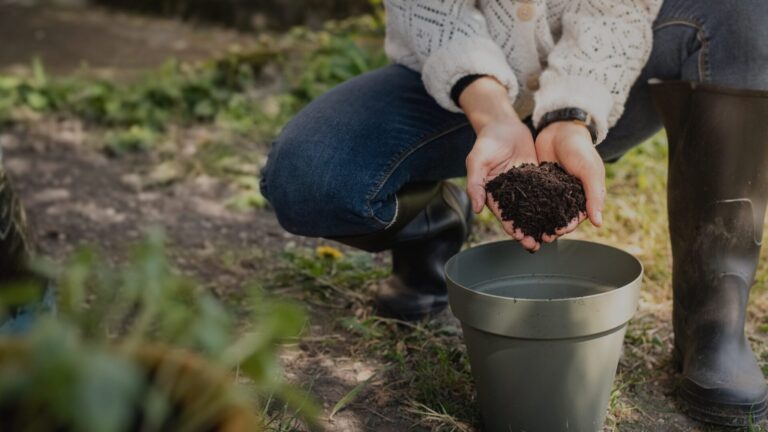Your morning coffee can do more than wake you up—it can help protect the planet. If you want to make eco-friendly choices without breaking the bank, switching to organic coffee is a simple first step.
This guide covers everything you need to know about organic coffee in Japan: what it is, how to choose the best type for your lifestyle, and easy ways to make your coffee routine more sustainable.
What Is Organic Coffee?
Organic coffee is grown without synthetic pesticides or chemical fertilizers. Known as “yūki coffee (有機コーヒー)” or “organic coffee (オーガニックコーヒー)” in Japan, it offers cleaner flavors while reducing environmental harm.
How Organic Coffee Is Made
Organic farmers follow strict rules:
- No synthetic pesticides or chemical fertilizers
- Soil management for 3+ years before planting
- Natural compost and fertilizers only
- Chemical-free processing after harvest
Many organic farms use shade-growing methods, where coffee plants grow alongside other vegetation. This protects biodiversity and creates habitats for birds and insects.
Environmental Benefits
Choosing organic coffee helps the planet in several ways:
- Prevents soil and water contamination
- Reduces greenhouse gas emissions from chemical production
- Supports biodiversity on farms
- Protects wildlife habitats in coffee-growing regions
Types of Organic Coffee: Finding Your Perfect Match
Instant Coffee
Best for: Busy schedules and office breaks
Organic instant coffee uses special freeze-drying techniques to preserve flavor. Just add hot water for rich, authentic taste in seconds. It’s affordable and perfect for trying organic coffee without commitment.
Drip Coffee vs. Ground Coffee
Drip Coffee comes in single-serving packets. Pour hot water over the packet for fresh coffee without measuring. Choose this if you drink coffee occasionally.
Ground Coffee is more economical for daily drinkers. You can adjust strength to taste, but it loses freshness quickly once opened. Store in an airtight container in a cool, dark place.
Green Coffee Beans
Best for: Coffee enthusiasts
Home roasting lets you control every step from bean to cup. You can customize roast levels—light for bright acidity, dark for bold richness. However, it requires special equipment and practice.
Top Organic Coffee Recommendations in Japan
Ogawa Coffee Kaori Organic Coffee
Key Features:
- JAS organic certified
- Bright aroma with chocolate-like sweetness
- Part of sales donated to women’s health initiatives
Ethiopian and Ugandan beans create a floral fragrance with smooth sweetness and milk-chocolate richness.
Mitsumoto Coffee Organic Drip Coffee
Key Features:
- JAS Organic + Rainforest Alliance certified
- 100% Colombian Arabica beans
- Individually packaged for freshness
Convenient drip coffee combining environmental care with exceptional taste.
Emmy Organics Organic Instant Coffee
Key Features:
- JAS Organic + Fair Trade certified
- 100% Arabica beans
- Freeze-dried for rich flavor
Tanzanian and Central American blend offering deep aroma and full body. One jar makes about 100 cups.
Kamakura Roasted Coffee Organic Blend
Key Features:
- JAS Organic + Rainforest Alliance certified
- Balanced deep and light roasts
- Eco-friendly paper packaging
100% Peruvian beans with smooth depth and vibrant aroma. Plastic-free packaging adds eco-conscious appeal.
Kotobuki Ujien Peruvian Organic Coffee
Key Features:
- JAS Organic certified
- Grown without pesticides or chemical fertilizers
- Transparent sourcing from northern Peru
High-altitude beans (1,500–1,800 meters) from Jaén, Peru, with refined acidity and gentle sweetness.
Minami Aoyama Coffee Organic Original Blend
Key Features:
- JAS Organic certified
- Transparent blend with listed origins
- Choice of roast levels
Peruvian, Mexican, and Guatemalan beans create balanced richness, sweetness, acidity, and bitterness.
Tokyo Coffee Organic Peruvian Beans
Key Features:
- Certified organic, pesticide-free
- Single-origin Peruvian beans
- Full City Roast with caramel, nutty notes
Versatile choice available as whole beans or ground, offering smooth, well-rounded flavor.
Azabu Takano Organic Café Glacé Iced Coffee
Key Features:
- JAS Organic certified, unsweetened
- Charcoal-roasted and slow-drip brewed
- No preservatives or additives
Made with Southern Alps spring water for deep, roasted flavor with a clean finish.
Azabu Takano Organic Café Glacé Iced CoffeeBuilding Sustainable Coffee Habits
Simple Daily Changes
- Bring a reusable cup: Many cafés offer discounts while reducing waste
- Reuse coffee grounds: Use as natural fertilizer for acid-loving plants or as deodorizers
- Choose eco-friendly packaging: Look for biodegradable or recycled materials
Smart Shopping Tips
- Bring your own container to bulk coffee shops
- Repurpose empty jars for pantry storage
- Support cafés with sustainability programs
Understanding Organic Certifications
Japanese Standards
JAS Organic Certification is Japan’s gold standard, ensuring no synthetic chemicals, fertilizers, or GMOs.
International Certifications
- USDA Organic (United States)
- EU Organic (Europe)
- Rainforest Alliance (focuses on forest protection and workers’ rights)
What to Look For
- Multiple certification marks increase credibility
- Clear sourcing information ensures traceability
- Fair pricing reflects authentic organic farming costs
Making the Switch to Sustainable Living
Starting with organic coffee is an easy entry into sustainable living. You don’t need to change everything at once—replace a few cups per week to begin.
Consider balancing coffee with locally sourced Japanese teas for an even more eco-friendly lifestyle.
Conclusion
Switching to organic coffee is one of the simplest sustainable choices you can make. Your morning cup can help protect the environment, support farmers, and deliver better flavor.
Start with any option from this guide—instant, drip, ground, or green beans. Begin small and let sustainable coffee become a natural part of your routine.
Your daily coffee can be good for you, good for farmers, and good for the earth.














